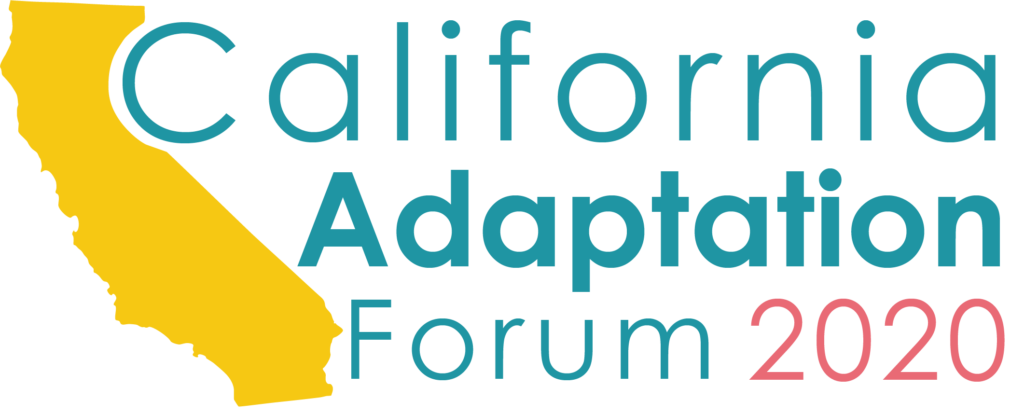Advancing Adaptation Throughout California
The biennial California Adaptation Forum gathers the adaptation community from across California and beyond to foster knowledge exchange, innovation, and mutual support to create resilient communities and tackle our state’s most pressing climate change challenges. The Forum offers a series of engaging plenaries, sessions, workshops, tours, networking opportunities, and more to support our transition from adaptation awareness and planning to action on the ground.
Since we last convened for the 2018 California Adaptation Forum, communities across California continued to face catastrophic wildfires, devastating floods and mudslides, and record-breaking heat waves — sobering reminders of our urgent need to address the many climate impacts affecting our community members, local economies, and valuable ecosystems. At the same time, we have also seen tremendous strides and innovation in policymaking, research, community engagement practices, and on-the-ground implementation, giving us hope and tangible strategies to accelerate progress towards creating an adaptive and resilient California.
The 4th California Adaptation Forum will bring together a multi-disciplinary audience to:
- Uplift voices from frontline communities, emerging youth leaders, and other underrepresented stakeholders;
- Learn about emerging trends in the adaptation field — from new developments in finance and insurance markets to technological advancements and innovative strategies;
- Showcase real-world examples of adaptation initiatives that have tangibly increased community resilience;
- Highlight new legislation, funding programs, and financing mechanisms;
- Present the latest tools and resources being deployed across the state; and
- Provide opportunities for participants to reconnect with old colleagues and discover new partnerships.












